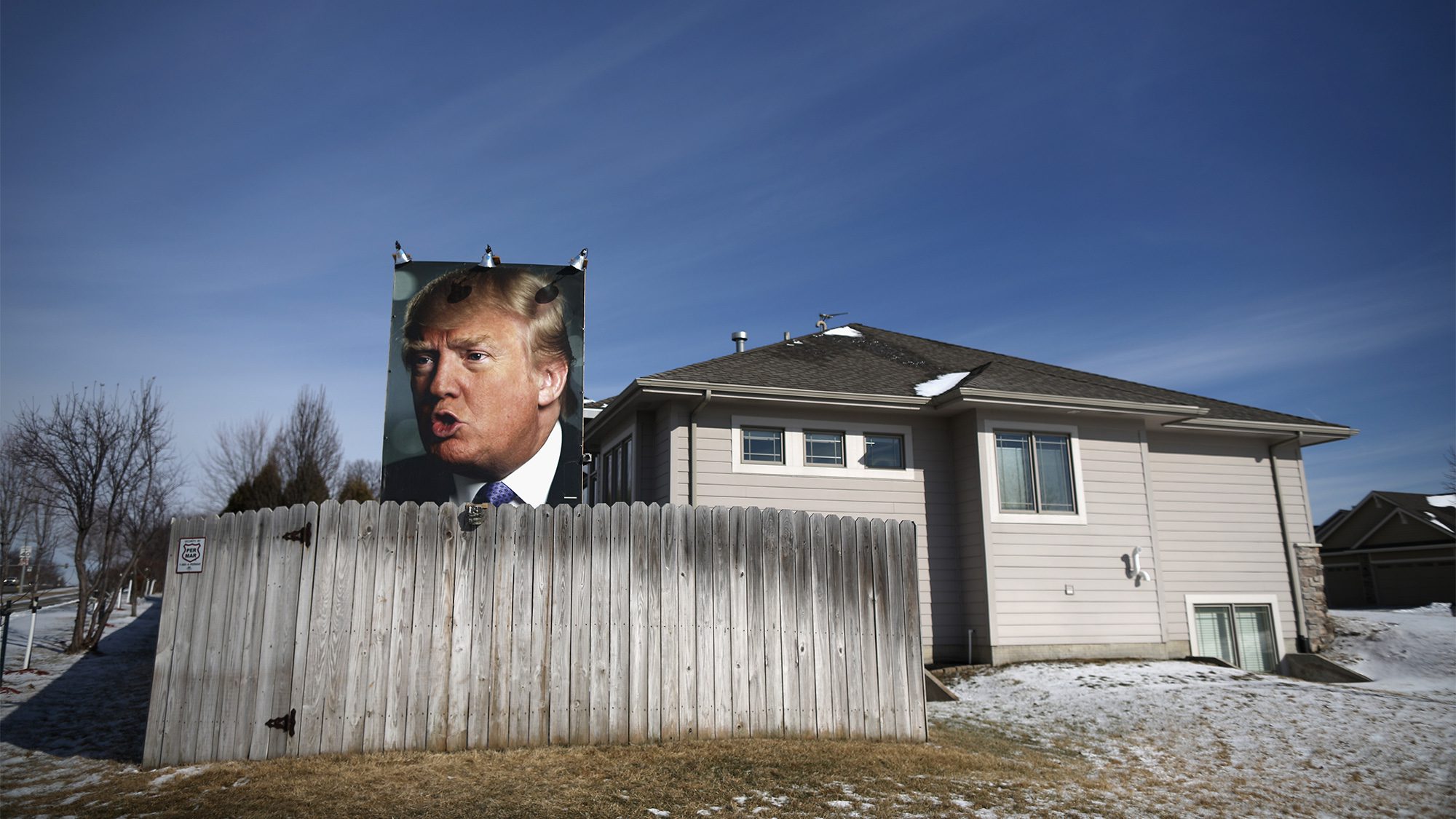
Christopher Furlong/Getty Images
Whoever wins the presidential race come November could determine the fate of housing markets across the country, according to a report from analysts at the financial services firm BTIG.
Since the 2016 presidential election, counties that voted for President Trump have seen stronger housing markets than those that voted for former Secretary of State Hillary Clinton, as measured by the volume of single-family building permits.
‘A change in administration might have a meaningful effect on confidence dependent on party affiliation and, by extension, the housing market.’
Between October 2016 and October 2019, “Trump counties” experience a 1.5% uptick in single-family building permits, whereas “Clinton counties” reported an 8.5% decrease, BTIG’s analysis found.
Shifts in consumer confidence along party lines could explain the permitting trends, the analysts said. They noted that two separate measures of consumer confidence—University of Michigan’s Consumer Confidence Index and the Bloomberg Consumer Comfort Index—displayed a change in consumer sentiment following President Trump’s election. Republican consumers have become more upbeat, whereas Democrats’ confidence has waned.
“A change in administration might have a meaningful effect on confidence dependent on party affiliation and, by extension, the housing market,” the BTIG analysts wrote. “Conversely, the reelection of President Trump might continue to bolster current trends.”
In other words, if one of the Democratic candidates for president emerges victorious come November, then “blue” counties could see a boost to their housing stock. A second term for Trump, meanwhile, would support continued housing growth in Republican-leaning parts of the country.
The disparity in permit activity was magnified in counties where one of the two candidates won in a landslide. In counties where Trump won by a margin over 50%, there was an 11% increase in building permits between 2016 and 2019. Meanwhile, in counties where Clinton won by that same margin, the number of building permits issued dropped 9%.
In counties where Trump won by a margin over 50%, there was an 11% increase in building permits between 2016 and 2019.
As the BTIG analysts noted, job and wage growth was roughly similar between the two sets of counties. Trump counties experienced a higher degree of job growth than Clinton counties, at 5.7% and 4.7% respectively. The opposite was true of wage growth, by which Clinton counties (10.2% growth) outpaced Trump counties (9.5% growth).
The election’s results could also benefit some publicly-traded home builders over others, BTIG suggested. Three major home builders—TRI Pointe Group, Toll Brothers and KB Homes— have greater market share in areas Clinton won in 2016. Comparatively, companies like LGI Homes, D.R. Horton and NVR, Inc. have built more in Trump-dominated counties.
However, the researchers cautioned that multiple factors are likely at play with regard to permitting activity in different parts of the U.S. Trump-won counties are smaller in population, more rural and less expensive generally than those that voted for Clinton. In recent years, home-building activity has ramped up in those parts of the country as a growing number of people have decided to leave more expensive, larger cities, particularly along the East and West Coasts.
Additionally, local zoning regulations are likely playing a role. Many of the housing markets with the most stringent regulations for new-home construction are densely populated cities that historically are Democratic strongholds.
The post How a Trump Win in 2020 Could Reshape Housing Markets Across America appeared first on Real Estate News & Insights | realtor.com®.
source https://www.realtor.com/news/trends/how-a-trump-win-in-2020-could-reshape-housing-markets-across-america/
No comments:
Post a Comment